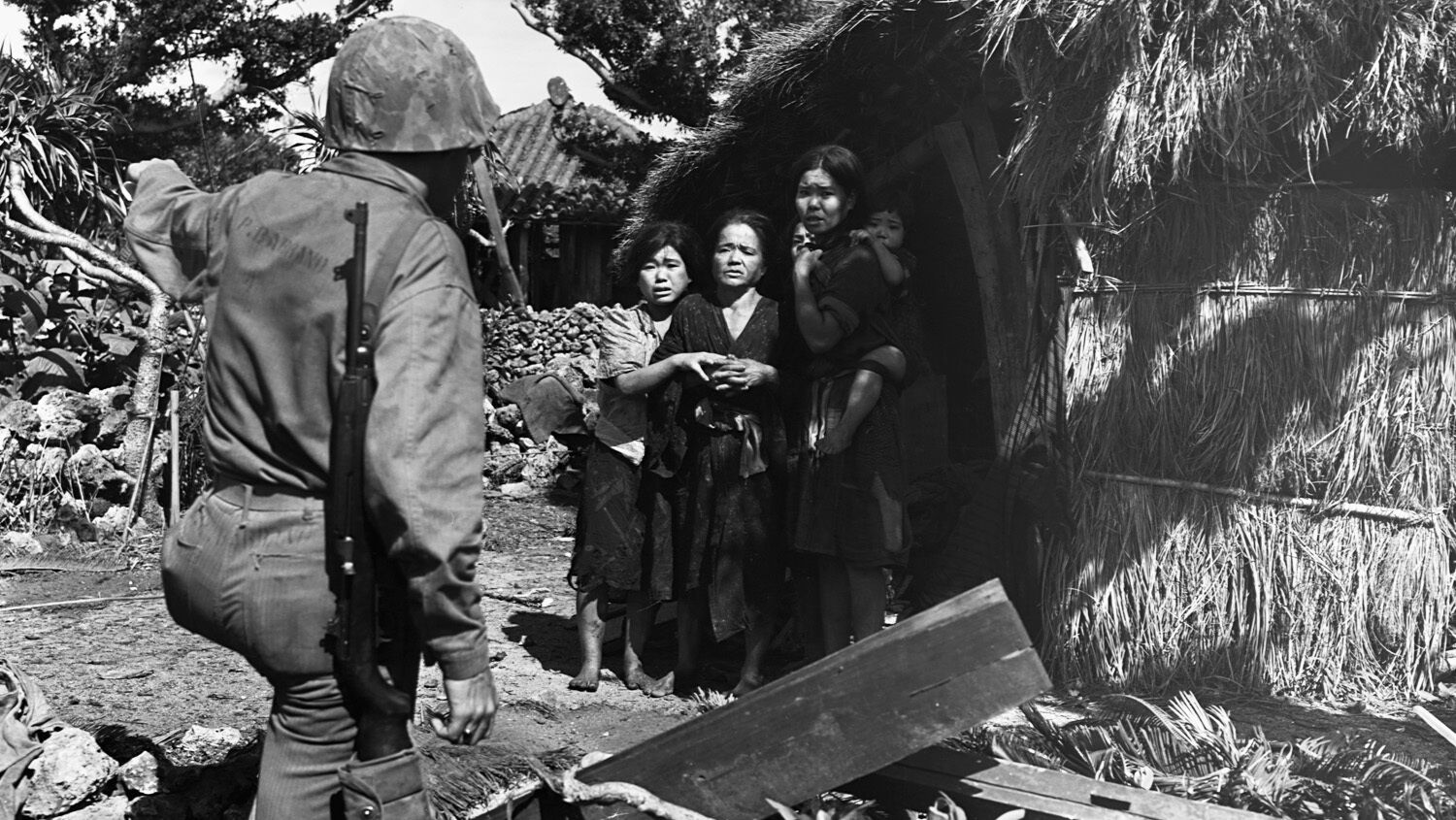
Japanese Military’s Role in World War II Mass Suicides Cut From Textbooks
Information about the Japanese military forcing tens of thousands of civilians to commit suicide during the Battle of Okinawa has been scrubbed from Japanese textbooks, according to a new report by the group Kodomo to Kyokasho Zenkoku Net 21.
Haruyoshi Matsuura, leader of the group’s Toyama Prefecture division facilitators, explained the well-established truth about the three-month battle to the Mainichi Shimbun newspaper:
The main cause of mass suicides during the Battle of Okinawa was the Japanese military not allowing residents to surrender, driving them into a corner.
Imperial soldiers also used a propaganda campaign to convince the Okinawan people that the American soldiers were ruthless savages who would commit atrocities on them and their family members. This prompted many to preemptively kill their families and themselves to avoid capture during the 1945 battle. The civilian population is believed to have been reduced by one quarter in the violence.
One of Okinawa’s main newspapers, Ryūkyū Shimpō, gives more detail:
There are many Okinawans who have testified that the Japanese Army directed them to commit suicide. There are also people who have testified that they were handed grenades by Japanese soldiers [to kill themselves and Americans].
This dark truth about one of World War ii’s most tragic chapters used to be taught to young Japanese students from their history and social studies textbooks. But three commonly used books, from publishers Kyoiku-Shuppan Co., Nihon Bunkyo Shuppan Co. and Tokyo Shoseki Co., are now adopting new editions that remove blame from the Japanese military and place it instead on American soldiers.
Two of them say the thousands of civilian suicides resulted from the people “being cornered by [United States] military attacks” and omit any mention of Japanese military involvement. The other says Okinawans “were cornered by a fierce American military assault that burned deep into cave bunkers,” blaming mass suicides entirely on U.S. forces.
Matsuura said the new editions stray from the truth not just regarding the Battle of Okinawa “but also on territorial disputes and topics on the Constitution.” The books, he said, give many “one-sided descriptions that reject various perspectives and enforce the government’s views.” These latest moves come after years of Japanese textbooks whitewashing everything from the military’s use of “comfort women” and medical experiments on prisoners of war to the 1937 Nanjing Massacre.
“We hope people take a look at the revised editions and understand the problems,” Matsuura said.
But would Japanese leaders view these revisions as problems? In 1984, author George Orwell explained that the hand of those who write history, or select which books are taught, are imbued with great power: “He who controls the past controls the future, and he who controls the present controls the past.”
Authorities who determine what people are taught about the past can manipulate that information, molding it to shape people’s view of their place in the contemporary world. If authorities can shape the view of enough people in a certain group or country, they may be able to influence that group’s future. Authorities can revise history to suit their agenda.
History textbooks teach students a “state-sanctioned version of history,” Dana Lindaman and Kyle Ward write in their 2004 book History Lessons. “In nearly all countries, the government takes some role in setting the standards for an acceptable cultural, political and social history—i.e., what the authorities want the next generation to learn about its own national heritage—enfolding them, as it were, into a collective national identity” (emphasis added).
Textbook versions of history are far from objective, Lindaman and Ward say, because they “are typically written by national authors with a national audience in mind, leading to a sort of insularity on any given historical topic.”
Why would Japanese authorities wish to whitewash the role of Imperial Japan’s troops? It seems they feel that the young generations have been fed on a diet of guilt for long enough. Now it is time to move on. Such deflection helps to instill pride and nationalism in the minds of young generations. By replacing guilt with pride, the authorities can prepare young Japanese to be ready to rise up against other nations again—perhaps even their American ally.
We should be wary of a world that widely practices historical revisionism. The trend obscures history’s precious truths. It breeds ignorance. And historical ignorance keeps the world from learning from past mistakes, which, as George Santayana famously said, dooms us to repeat them.
As students in Japan, Germany and other countries are educated in ways intended to make them more nationalistic, it will soon lead to a time of trouble worse than any the world has ever suffered. Matthew 24 and Daniel 12:1 make clear that this future age will be far darker than World Wars i or ii. But the Bible also says this darkness will give way to the brightest and most radiant dawn in history.
To understand more about the past and future of Japan, and about the peace in store for all of mankind, read “Why the Trumpet Watches Japan’s March Toward Militarism.”
